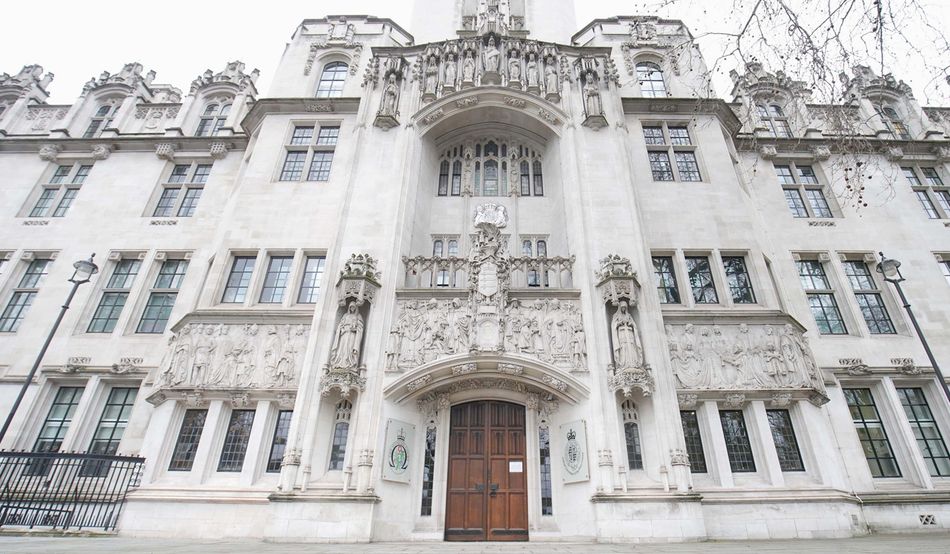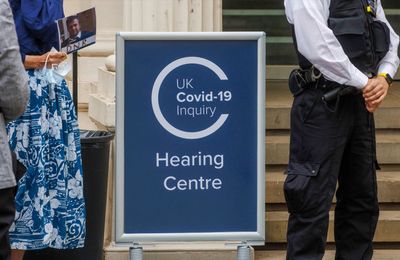You may not have heard of Lord Leggatt, a judge who joined the Supreme Court of the United Kingdom in 2020. One may not expect anything sensational from a former English commercial lawyer, even one who also practised in New York. But his recent judgments are very interesting.
In one recent case he wrote the unanimous opinion of the Supreme Court in a criminal appeal. The Supreme Court does not hear many criminal appeals, and this one was a cracker. It was a case about an alleged crime in the City of London in respect of offered interest rates.
“The history of these two cases raises concerns about the effectiveness of the criminal appeal system in England and Wales in confronting legal error,” his judgment began. And then, one by one, he showed how almost everyone involved in the prosecution, trials and appeals of those convicted were in error. It was a wide-ranging, scathing critique of English criminal law in action.
The terms of the judgment meant there was no scope for a clichéd “as so often, the truth is somewhere in between” compromise beloved by some commentators: either Lord Leggatt is right about the criminal appeal system or he is not. And the detailed knowledge he brought to his discussion of this particular financial criminal offence indicates he is right.
There are various reasons why the UK Supreme Court does not hear many criminal appeals. Almost all contested criminal cases come down to evidence and such matters are for the courts of first instance. Rarely does a criminal case genuinely turn on an appealable point of law.
The criminal appeals system is also generally left to itself by the Supreme Court, with experienced if rather hardened appeal justices dismissing case after case. And it is rare for any criminal lawyer to get to the highest court. Only two of the current justices mention criminal law experience in their online biographies (and that is as a prosecutor and as a judge, rather than as a defence lawyer). What made a difference here seems to have been Lord Leggatt knowing a great deal about financial matters, more than his criminal law experience.
One hopes that this recent criminal case will mean the Supreme Court takes a more active role in criminal cases, and more cases will be certified as having the public interest element required for an appeal at the highest court. The criminal justice system of England and Wales could certainly use more and better supervision, and not only in cases where the appellants had been working in the City of London. The Supreme Court could thereby serve a useful purpose.
But one purpose the Supreme Court also has—or should have—is for protecting individual rights against the state, and here the highest court failed badly last week. And this brings us to the other judgment of Lord Leggatt.
This time, however, his lordship was in a minority of one. The appeal was about sanctions on individuals in respect of the Russian aggression against Ukraine. The majority of the court sided with the government, effectively nodding-along with the state’s exercise of powers.
As the majority said, “the Foreign Secretary and the Transport Secretary should be accorded a wide margin of appreciation in making their judgments about whether the objectives of the measures, in terms of responding to and seeking to restrain Russia’s actions in Ukraine, are sufficiently important to justify the limitation of a fundamental right; whether there is a rational connection between the measures and those objectives; whether a less intrusive measure could have been used; and whether a fair balance has been struck between the relevant Convention rights of the individuals and others concerned and the interests of the community”.
Lord Leggatt was having none of this. In a dissent as scathing and as detailed as the unanimous other judgment, he took apart this deferent dithering by the majority about the protection of individuals: “[i]f that protection is to be meaningful, giving a ‘wide margin of appreciation’ to the views of ministers and government officials cannot be taken too far. The courts are failing in their duty if they simply rubber-stamp assertions made by the executive to justify invading individual liberties without subjecting those assertions to critical scrutiny. At para 130 of their judgment Lord Sales and Lady Rose suggest that the executive should be accorded a ‘wide margin of appreciation’ on the ground of having greater institutional competence than the courts to judge whether its own decision to restrict the liberty of an individual strikes a ‘fair balance’ between the rights of that individual and the interests of the community. With that view, I profoundly disagree.”
He is right to disagree. These are ultimately questions for a court and not for the executive. Lord Leggatt’s dissent is comparable to the celebrated minority speech of Lord Atkin in the wartime case of Liversidge v Anderson. Lord Atkin’s sterling speech is known to almost every lawyer and will be known to the majority of the Supreme Court. But the speech posits a principle that is more honoured by judges in its breach than its observance.
Two speeches, one for a unanimous bench, the other a lonely dissent. A senior judge has set out in turn how the criminal appeals system is failing and how the Supreme Court itself is failing. Both speeches should have the widest possible circulation.















